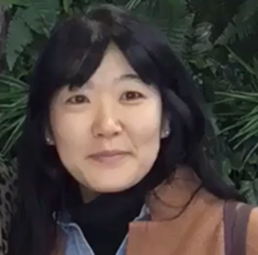
Matthew Sanderson: More Than One Lifetime: Redefining Disability and Living Fully
What is disability? Ask me at any time of day, and I’ll probably give you any one of a range of answers. Though most will be of the theme “it’s a bloody nuisance, but I’m not letting it stop me”.

Matthew Harrison: Ageing with Autism – My Journey
For years, I thrived on minimal sleep. I didn’t rest well, but I kept my overactive mind busy—anything to avoid lying awake creating shapes from shadows or spiralling into anxiety. Socialising was my lifeline. If there wasn’t a plan, I made one. I had to stay busy so I texted friends most days trying to fill every evening.

TIN-Bee Staff: Trans Parent Day Letter
Being a parent who is a trans woman can be a complicated experience at times. While I knew I was trans for a long time, I did not come out until later in life. Becoming a parent was wonderful, scary and very emotional time. The joys of being a parent were also reminders that I was not as mum.

Dr David Firth: Rethinking Introductions – Ditching Ritual Name-Rounds
This post challenges the tradition of name-rounds in large meetings and workshops, arguing they often fail to foster genuine connection. The post explores inclusive, purposeful alternatives that build comfort and engagement – without the awkwardness.

Dr David Firth: Poetry for Wellbeing
This post explores how reading poetry can support wellbeing by fostering emotional processing and resilience and offering a moment of calm, as well as supporting academic development.

TIN-Bee Staff: Genderfluid Visibility Week
My experience of my own gender has never been set in stone. Even when I was in primary school, I remember feeling different somehow. I was a ‘tomboy’ some days, wearing my cousins’ hand me down clothes, playing in mud and fascinated by insects and frogs. Other days, I wanted to dance and sing to musical numbers wearing my grandma’s long frilly nightie. I loved dressing up and pretending I was someone else.

TIN-Bee Staff: 1996-2026: 30 years of Intersex Awareness Fortnight
Originally the day of a protest in Boston, Massachusetts, October 26th 1996, drew attention to the harmful practice of non-consensual genital surgery performed on intersex children to make their bodies conform to a gender binary, despite any lack of medical necessity. this was the first visible public act of defiance and brought the issue of intersex bodily autonomy and rights to the forefront.

Eon Kim: Decolonising in practice: lessons from a diversifying reading list pilot
Decolonising the curriculum has been widely discussed across HE, but what it means in day-to-day teaching is less clear. The idea, examining how colonialism, domination, imperialism, and racism have shaped academic knowledge and excluded non-Western voices in higher education, is well-established in theory (Mignolo, 2017; Stockdale and Sweeney, 2022). Yet I’ve wondered how well our everyday teaching materials reflect these ideas in practice, and how we might translate theory into everyday pedagogical work.

Adesewa Adebisi and Melville Nyatondo: Faces of Leadership: Black Scientists Shaping Cancer Research and Care (feat. Irene Nambuya, Emmanuel Okwelogu, Dr Kelechi Njoku)
Featuring Dr Kelechi Njoku, Irene Nambuya and Emmanuel Okwelogu. Representation in cancer research is essential for advancing progress and ensuring that discoveries benefit all communities. This Black History Month, we celebrate Black leaders at the Manchester Cancer Research Centre, highlighting their proudest moments, lessons learned, and hopes for the future.

Dr. Dominique Burrows: Black History Month is about honouring the past while shaping a more equitable future.
Growing up in the Bahamas, living in the United States, and now calling the UK home, my identity as a Black woman has been shaped by the places I’ve inhabited. Each country has shown me different ways of understanding race, gender, and what it means to belong. What hasn’t changed is the resilience I’ve needed to navigate systems that weren’t built with people like me in mind. Black History Month’s 2025 theme, Standing Firm in Power and Pride, speaks to something I know well: flourishing as a Black woman in higher education means carrying forward histories of struggle while celebrating the joy that comes from perseverance.






Recent Comments